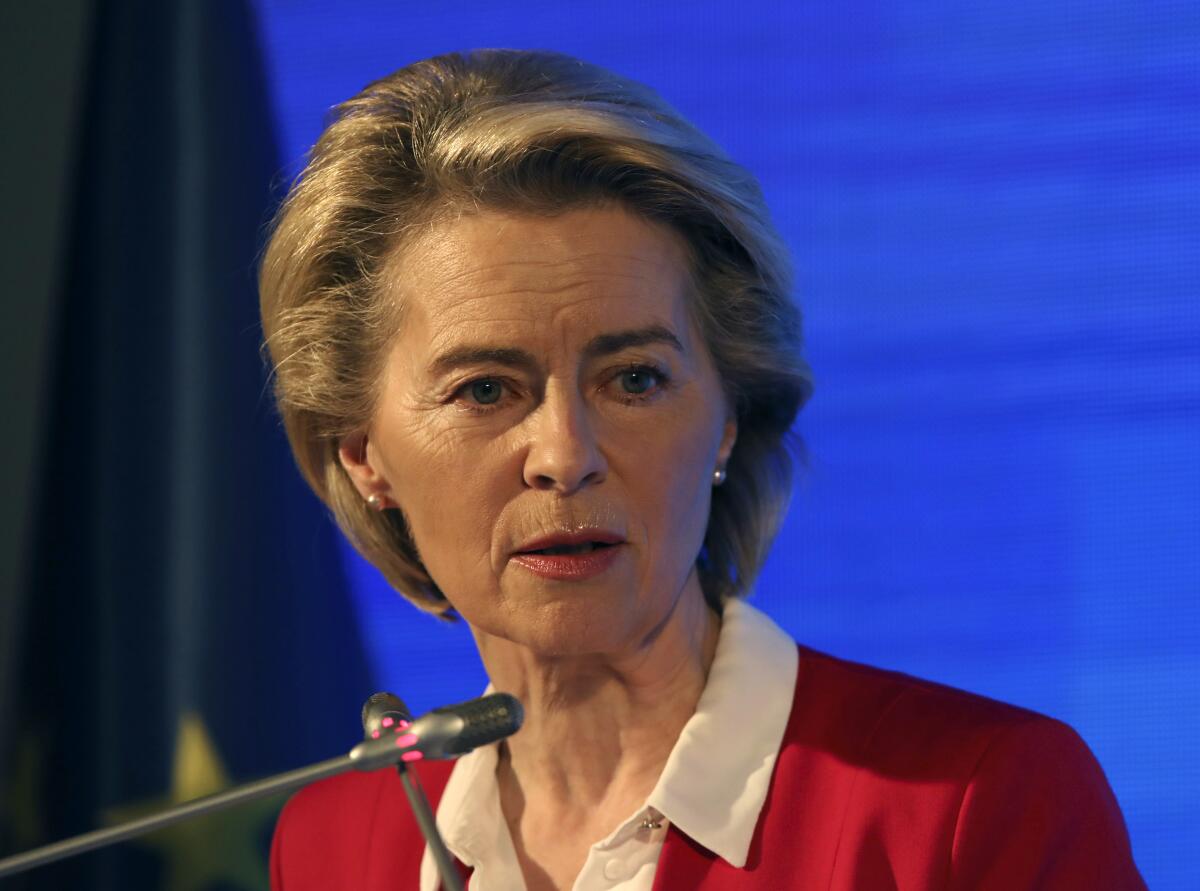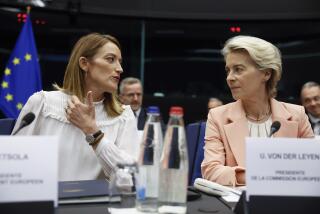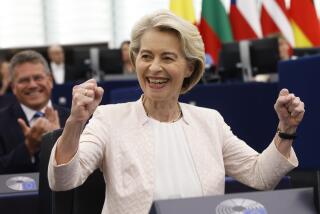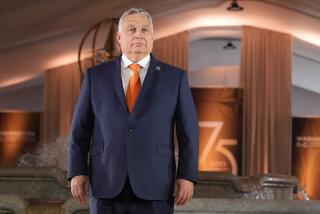Snub in EU-Turkey meeting highlights gender equality issue

BRUSSELS — Gender equality issues took center stage Wednesday in Brussels a day after Ursula von der Leyen, one the EU’s most powerful executives, was treated like a second-rank official during a visit to Ankara, Turkey.
Von der Leyen — the European Commission president — and European Council chief Charles Michel visited Turkey on Tuesday for talks with Turkish leader Recep Tayyip Erdogan focusing on EU-Turkey relations. After they were led into a big room for discussions with Erdogan, TV images showed that only two chairs had been laid out in front of the European Union and the Turkish flags for the three leaders.
Michel and Erdogan took the chairs as Von der Leyen stood looking at both men, expressing her astonishment with an “ehm” and a gesture of disappointment. Von der Leyen eventually sat on a large beige sofa, away from her male counterparts.
According to an EU source, the meeting between the three leaders lasted more than 2½ hours.
“The important thing is that the president should have been seated exactly in the same manner as the president of the European Council and the Turkish president,” EU Commission chief spokesman Eric Mamer said, adding that Von der Leyen was surprised by the arrangements.
“She decided to proceed nevertheless, prioritizing substance over protocol, but nevertheless let me stress that the president expects ... the institution that she represents to be treated with the required protocol, and she has therefore asked her team to take all appropriate contacts in order to ensure that such an incident does not occur in the future,” Mamer said.
He added that Von der Leyen’s protocol team did not travel to Turkey with her because of the pandemic.
There was no immediate comment from the Turkish presidency.
Michel said the embarrassment was the result of the “strict interpretation” by Turkish services of protocol rules and regretted “the differentiated, even diminished, treatment of the president of the European Commission.”
In a statement released late Wednesday, Michel said that although TV images could have given the impression he was “insensitive” to Von der Leyen’s uncomfortable situation, “nothing could be further from reality, nor from [his] deepest feelings.”
The diplomatic incident was abundantly commented on in social media. European lawmaker Sophie in ’t Veld posted pictures of previous meetings between Michel’s and Von der Leyen’s predecessors with Erdogan, with the trio of men sitting in chairs next to one another.
“And no, it wasn’t a coincidence, it was deliberate,” In ‘t Veld wrote on Twitter, questioning why Michel remained “silent.”
“‘Ehm’ is the new term for ‘that’s not how EU-Turkey relationship should be,’ said Sergey Lagodinsky, another member of the European Parliament, using the hashtags #GiveHerASeat and #womensrights.”
Last month, Erdogan pulled Turkey out of a key European convention aimed at combatting violence against women, triggering criticism from EU officials. The move was a blow to Turkey’s women’s rights movement, which says domestic violence and killings of women are on the rise.
Von der Leyen called for Erdogan to reverse his decision to withdraw from the Istanbul Convention.
“Human rights issues are non-negotiable. We were very clear about that. We urge Turkey to reverse its decision because it is the first international binding instrument to combat violence against women and children,” she said.
Asked whether the commission regarded the incident as specifically gender related, Mamer said Von der Leyen traveled to Ankara as the president of an EU institution.
“Being a man or a woman does not change anything to the fact that she should have been seated according to the very same protocol arrangements as the two other participants,” Mamer said. “She seized the opportunity to specifically tackle the Istanbul Convention and women’s rights. I believe that the message sent was clear.”
___
Suzan Fraser in Ankara and Raf Casert in Brussels contributed to this story.
More to Read
Sign up for Essential California
The most important California stories and recommendations in your inbox every morning.
You may occasionally receive promotional content from the Los Angeles Times.










